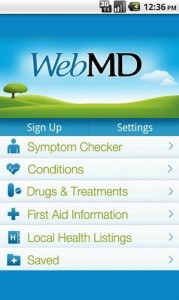 Almost two-thirds of Americans were interested in using a mobile app to manage their health, according to a new survey of 1,015 American adults by Makovsky Health and Kelton.
Almost two-thirds of Americans were interested in using a mobile app to manage their health, according to a new survey of 1,015 American adults by Makovsky Health and Kelton.
"Smartphones and wearables are driving a major behavioral shift in consumer health and wellness," Gil Bashe, executive vice president of Makovsky Health, said in a statement "Beyond a desire to speed access to information, consumers are using technology to engage proactively in managing their health – and a personality of 'search' is influenced by specific medical conditions. We also see stark differences between Millennials and those 66 and older in this year's survey. Savvy health marketers will apply these insights to engage and involve patients in more meaningful, customized ways."
The study found that millennials were more than twice as likely to be interested in using a mobile app to manage their health compared to Americans 66 and older.
Survey respondents were most interested in tracking diet and nutrition (47 percent), followed by medication reminders (46 percent), symptom tracking (45 percent), and physical activity tracking (44 percent).
Interests also changed based on whether the respondent was a patient with a chronic condition. For instance, among those with gastrointestinal conditions, 63 percent were interested in tracking diet and nutrition. Sixty-one percent of obese or overweight respondents would use a mobile app to communicate with a doctor. Those with pulmonary conditions were more likely to want medication reminders and those with cardiovascular conditions wanted to track sleep.
Even more respondents were willing to use a wearable to track their health than were willing to use a smartphone: 79 percent. Of those, 52 percent were interested in tracking activity, 45 percent in tracking symptoms, 43 percent in managing a personal health issue or condition, 41 percent in tracking sleep patterns, and 39 percent in tracking diet and nutrition.
Other findings from the survey: 88 percent of those surveyed said they would share their personal information for the sake of improving care and treatment options, and respondents were three times more likely to look to WebMD over government-affiliated websites like the FDA or the CDC.
Ninety-one percent of respondents said they would search online for health information, but reported a willingness to do it for different reasons: 58 percent would use online search to manage an existing condition, 57 percent to explore symptoms, and 55 percent to research a treatment that's been prescribed to them. If they were diagnosed with a medical condition, however, 41 percent said they would research symptoms online, 26 percent would research treatment options, and 18 percent would research specialist doctors and treatment facilities.














